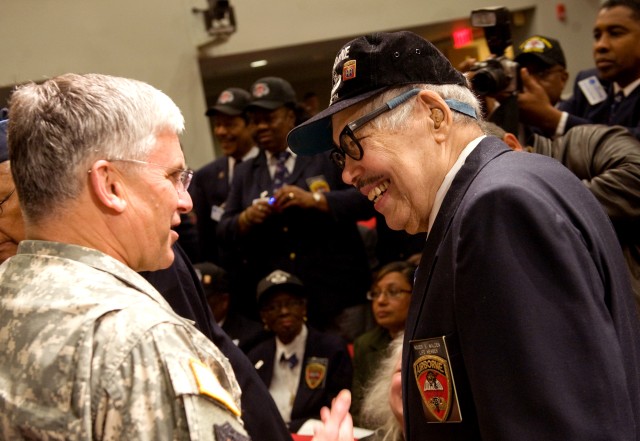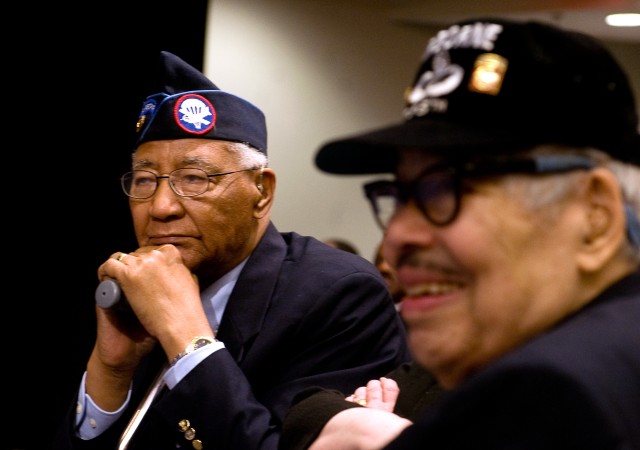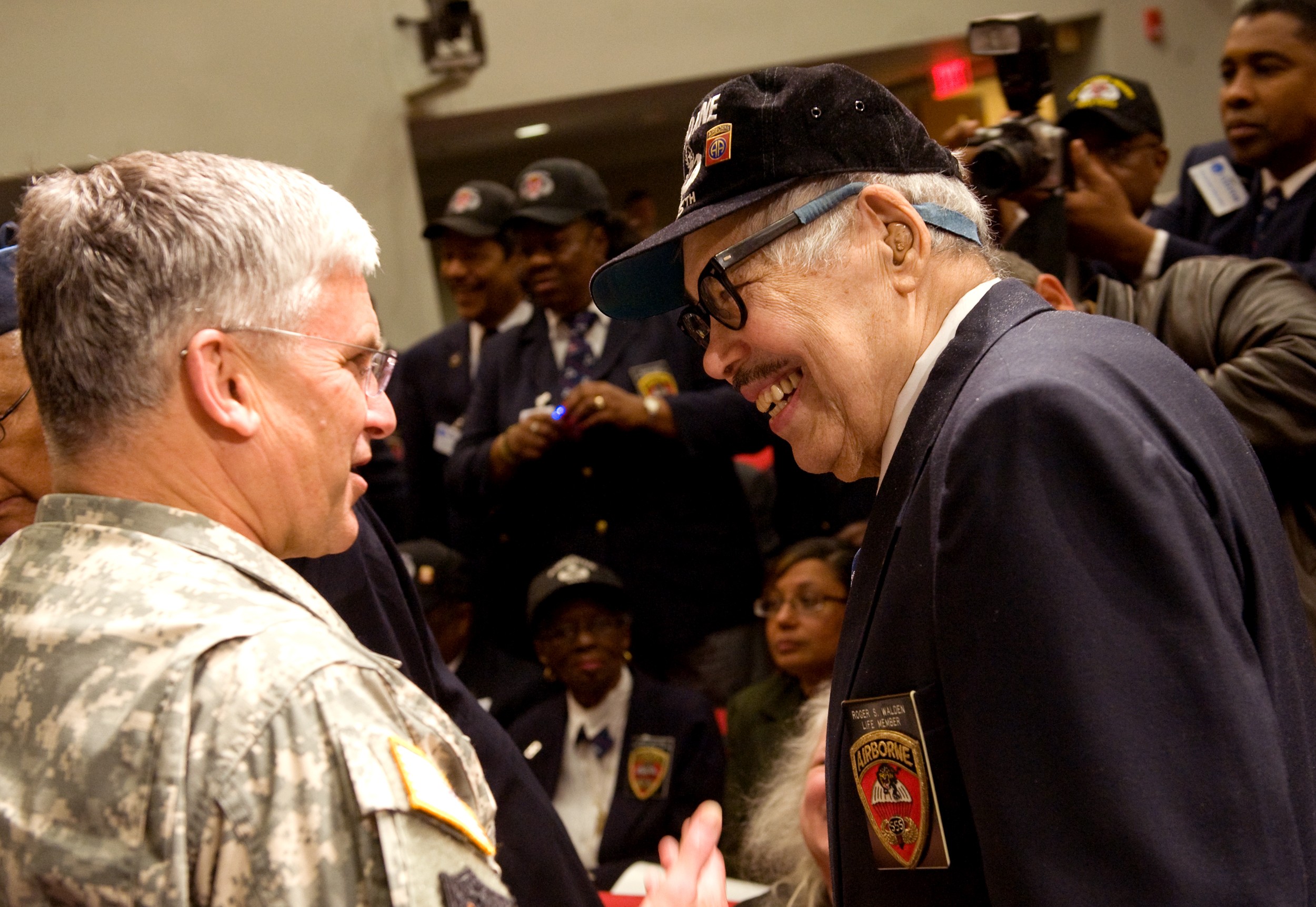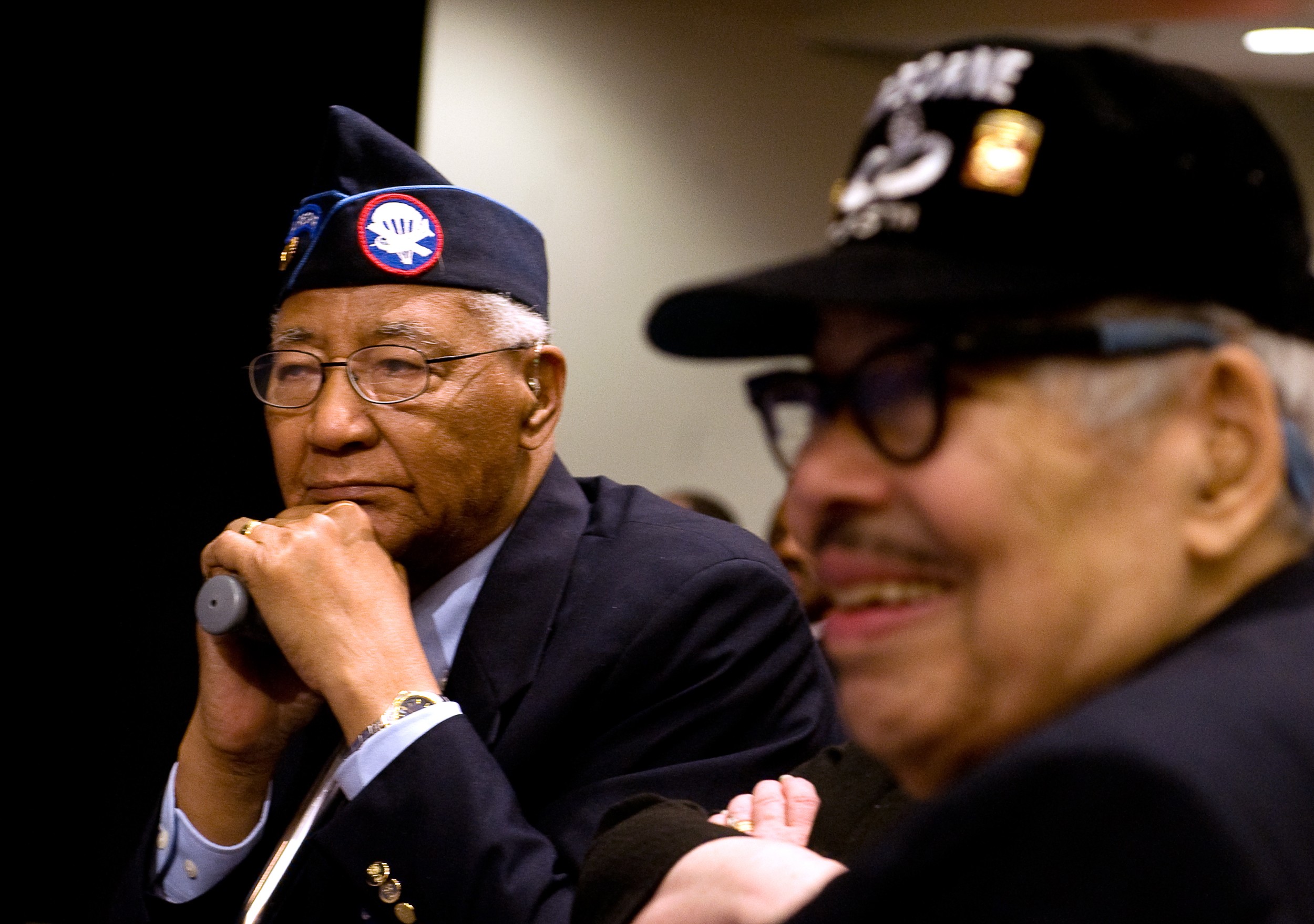WASHINGTON (Army News Service, March 30, 2010) -- In a standing-room-only ceremony at the Pentagon March 25, the Army paid tribute to the three surviving members of the original 17-member African-American "test platoon" of the 555th Parachute Infantry Battalion.
The Army observance of African American History had been slated for February, but was postponed due to blizzard-like conditions in the national capital area. But on this spring day, there was no holding back of friends, families and fellow paratroopers who wanted to get autographs and have their photos taken with the country's first African-American paratroopers.
Created in December 1943, the 555th was nicknamed the "Triple Nickles" (spelling derived from old English), for its numerical designation and because it was part of the 92nd Infantry Division of "Buffalo Soldiers." Even though the men who volunteered for the first company at Fort Huachuca, Ariz., were already airborne-qualified, they still had to use "colored" toilets and drinking fountains at the railroad stations, sit in segregated seating at theaters and go out of their way to avoid confrontations with racist police.
In November 1944, the company moved to Camp Mackall, N.C., where it was reorganized and re-designated as company A of the newly-activated 555th Parachute Infantry Battalion.
While the battalion didn't serve overseas during World War II, in May 1945 it deployed to the west coast of the United States to combat forest fires ignited by Japanese balloons carrying incendiary bombs. Though a serious threat didn't materialize, the paratroopers wearing football helmets with faceguards participated in fire-fighting missions throughout the Pacific Northwest during the summer and fall of 1945 earning the "Triple Nickles" an additional moniker of "smoke jumpers."
Following the war, the 555th was transferred to Fort Bragg, N.C., until it was inactivated in December of 1947, with most of its personnel being reassigned to the 505th Parachute Infantry Regiment.
The ceremony in honor of the 555th last week began with a performance by the University of Michigan-Flint Chamber Singers. Then Michele S. Jones, a retired command sergeant major, and herself a paratrooper, delivered the keynote address.
Now serving as the special assistant to the secretary of Defense White House liaison, Jones said she felt humbled and truly honored to speak because, "history is truly amongst us today... these three gentlemen... opened the door; they kicked open the door; they took the door off the hinges."
"The history of the 'Triple Nickle' Parachute Infantry Battalion gives us the rare occasion to talk and meet with the members who profoundly changed the course of history," she said, adding that celebrating the history of the 'Triple Nickles' was "truly an example of empowerment."
Clarence H. Beavers, one of the original 555th paratroopers who enlisted in 1943 and stayed with the unit through 1945, thought the recognition of his unit at the Pentagon while long overdue was "pretty amazing and I ... and my family appreciate the recognition."
"I thought the ceremony was really wonderful and most appropriate," said Roger S. Walden, 88, who was a sergeant with the unit. "It was truly something. There are three of us left today from the black test platoon, so it's really something to be honored by this."




Social Sharing